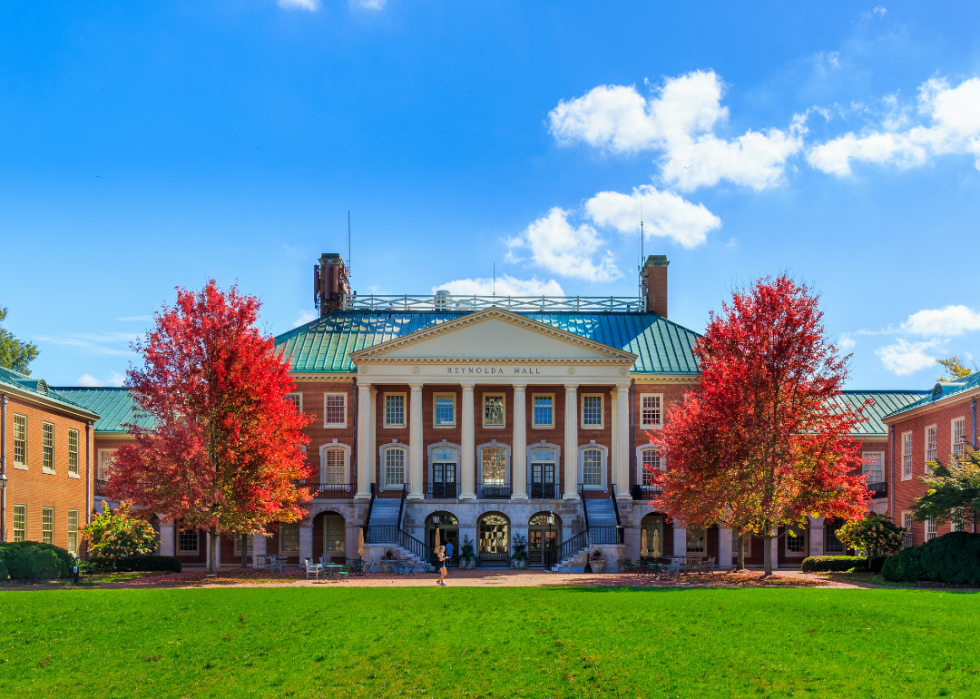Navigating the East Coast’s Academic Landscape: A Guide to Top Colleges
Related Articles: Navigating the East Coast’s Academic Landscape: A Guide to Top Colleges
Introduction
In this auspicious occasion, we are delighted to delve into the intriguing topic related to Navigating the East Coast’s Academic Landscape: A Guide to Top Colleges. Let’s weave interesting information and offer fresh perspectives to the readers.
Table of Content
Navigating the East Coast’s Academic Landscape: A Guide to Top Colleges
The East Coast of the United States boasts a rich tapestry of higher education institutions, renowned for their academic excellence, historical significance, and vibrant cultural environments. From the bustling metropolises of New York and Boston to the charming coastal towns of Maine and Virginia, this region offers a diverse array of educational opportunities for students seeking a transformative collegiate experience.
This article provides a comprehensive overview of the East Coast’s collegiate landscape, exploring key factors to consider when selecting a college, highlighting notable institutions in various states, and addressing frequently asked questions.
Understanding the East Coast’s Educational Landscape
The East Coast’s educational landscape is characterized by a vibrant mix of prestigious Ivy League institutions, renowned public universities, and specialized colleges with unique academic focuses. This diverse ecosystem provides students with a wide range of choices, catering to various interests and aspirations.
Key Factors to Consider When Choosing a College
When selecting a college on the East Coast, several key factors should be carefully considered:
- Academic Programs: The institution’s academic programs should align with the student’s chosen field of study. Research the available majors, minors, and concentrations to ensure a suitable fit.
- Faculty Expertise: The quality of faculty is paramount. Look for professors with extensive research experience, industry connections, and a passion for teaching.
- Campus Culture: The campus environment should foster a sense of belonging and intellectual curiosity. Consider factors like student-faculty ratio, extracurricular activities, and campus diversity.
- Location and Accessibility: The location of the college should be conducive to the student’s lifestyle and preferences. Consider proximity to major cities, transportation options, and the overall environment.
- Cost and Financial Aid: The cost of attendance should be carefully evaluated, considering tuition, fees, room and board, and other expenses. Explore available financial aid options and scholarship opportunities.
Exploring Notable Institutions by State
Maine:
- Colby College: A highly selective liberal arts college known for its strong academic programs, vibrant campus life, and picturesque setting.
- Bates College: Renowned for its commitment to undergraduate research and its focus on fostering intellectual curiosity and civic engagement.
New Hampshire:
- Dartmouth College: A prestigious Ivy League institution with a strong emphasis on undergraduate research and a commitment to interdisciplinary learning.
- University of New Hampshire: A public university with a wide range of academic programs, a strong focus on experiential learning, and a beautiful campus located near the coast.
Vermont:
- Middlebury College: A highly selective liberal arts college known for its rigorous academic programs, international focus, and stunning natural surroundings.
- University of Vermont: A public university with a strong focus on sustainability, a vibrant campus life, and a commitment to community engagement.
Massachusetts:
- Harvard University: A world-renowned Ivy League institution with a rich history, exceptional faculty, and a global impact.
- Massachusetts Institute of Technology (MIT): A leading technological university known for its innovative research, cutting-edge engineering programs, and entrepreneurial spirit.
- Tufts University: A private research university with a strong emphasis on undergraduate teaching, a diverse student body, and a beautiful campus located just outside Boston.
- Boston University: A large private university with a wide range of academic programs, a vibrant campus life, and a prime location in the heart of Boston.
- Smith College: A prestigious women’s college known for its rigorous academic programs, strong focus on the liberal arts, and vibrant campus culture.
- Amherst College: A highly selective liberal arts college known for its rigorous academics, strong faculty, and commitment to undergraduate research.
Rhode Island:
- Brown University: An Ivy League institution with a focus on interdisciplinary learning, a strong commitment to undergraduate research, and a vibrant campus culture.
- Rhode Island School of Design (RISD): A renowned art and design school with a strong focus on creative exploration, innovative teaching, and a vibrant community of artists and designers.
Connecticut:
- Yale University: A prestigious Ivy League institution with a rich history, exceptional faculty, and a commitment to academic excellence.
- Wesleyan University: A highly selective liberal arts college known for its strong academic programs, vibrant campus life, and commitment to social justice.
- University of Connecticut: A large public university with a wide range of academic programs, a beautiful campus, and a strong focus on research and innovation.
New York:
- Columbia University: A prestigious Ivy League institution with a strong focus on research, a vibrant campus life, and a prime location in New York City.
- Cornell University: An Ivy League institution with a strong focus on undergraduate teaching, a diverse student body, and a beautiful campus located in Ithaca, New York.
- New York University (NYU): A large private university with a wide range of academic programs, a vibrant campus life, and a prime location in the heart of New York City.
- Syracuse University: A large private university with a strong focus on experiential learning, a vibrant campus life, and a beautiful campus located in Syracuse, New York.
- Vassar College: A highly selective liberal arts college known for its rigorous academics, strong faculty, and commitment to undergraduate research.
Pennsylvania:
- University of Pennsylvania: An Ivy League institution with a strong focus on research, a vibrant campus life, and a prime location in Philadelphia.
- Carnegie Mellon University: A leading technological university known for its innovative research, cutting-edge engineering programs, and entrepreneurial spirit.
- University of Pittsburgh: A large public university with a wide range of academic programs, a vibrant campus life, and a strong focus on research and innovation.
- Swarthmore College: A highly selective liberal arts college known for its rigorous academics, strong faculty, and commitment to social justice.
New Jersey:
- Princeton University: A prestigious Ivy League institution with a strong focus on undergraduate teaching, a diverse student body, and a beautiful campus located in Princeton, New Jersey.
- Rutgers University: A large public university with a wide range of academic programs, a vibrant campus life, and a strong focus on research and innovation.
- Stevens Institute of Technology: A leading technological university known for its innovative research, cutting-edge engineering programs, and entrepreneurial spirit.
Delaware:
- University of Delaware: A large public university with a wide range of academic programs, a beautiful campus, and a strong focus on research and innovation.
Maryland:
- Johns Hopkins University: A prestigious research university known for its strong focus on medicine, engineering, and public health.
- University of Maryland, College Park: A large public university with a wide range of academic programs, a vibrant campus life, and a strong focus on research and innovation.
Virginia:
- University of Virginia: A public university with a rich history, a beautiful campus designed by Thomas Jefferson, and a strong focus on undergraduate teaching.
- Virginia Tech: A large public university with a wide range of academic programs, a vibrant campus life, and a strong focus on research and innovation.
- William & Mary: A public university with a rich history, a beautiful campus located in Williamsburg, Virginia, and a strong focus on undergraduate teaching.
North Carolina:
- Duke University: A prestigious private university with a strong focus on research, a vibrant campus life, and a beautiful campus located in Durham, North Carolina.
- University of North Carolina at Chapel Hill: A large public university with a wide range of academic programs, a vibrant campus life, and a strong focus on research and innovation.
South Carolina:
- Clemson University: A large public university with a strong focus on engineering, agriculture, and forestry.
FAQs about East Coast Colleges
Q: What are the most prestigious colleges on the East Coast?
A: The most prestigious colleges on the East Coast include the Ivy League institutions: Harvard, Yale, Princeton, Columbia, Brown, Dartmouth, Cornell, and the University of Pennsylvania. Other highly regarded institutions include MIT, Stanford, Caltech, and Duke.
Q: Are all East Coast colleges expensive?
A: While some East Coast colleges are known for their high tuition costs, there are also many affordable options available, including public universities and smaller liberal arts colleges.
Q: What are the best colleges for specific majors?
A: The best colleges for specific majors vary depending on the field of study. Research the rankings and reputations of different institutions in your chosen area.
Q: What are the benefits of attending an East Coast college?
A: Attending an East Coast college offers several benefits, including access to world-class faculty, a vibrant campus culture, and opportunities for internships and networking in major cities.
Tips for Choosing an East Coast College
- Visit campuses: Visiting campuses in person is essential to get a feel for the environment and meet with students and faculty.
- Attend college fairs: College fairs offer the opportunity to interact with representatives from various institutions and gather information about different programs.
- Connect with alumni: Reach out to alumni from colleges you are interested in to learn about their experiences.
- Research academic programs and faculty: Ensure that the college offers programs that align with your interests and that the faculty have expertise in your chosen field.
- Consider the campus culture and location: Choose a college that fits your lifestyle and preferences, considering factors like campus diversity, extracurricular activities, and proximity to major cities.
Conclusion
The East Coast’s vibrant academic landscape provides a diverse range of opportunities for students seeking a transformative collegiate experience. By carefully considering key factors like academic programs, faculty expertise, campus culture, location, and cost, students can identify the ideal college that aligns with their individual aspirations and goals. Whether seeking a prestigious Ivy League education, a specialized program at a renowned research university, or a close-knit community at a small liberal arts college, the East Coast offers a wealth of choices to embark on a journey of intellectual growth and personal discovery.


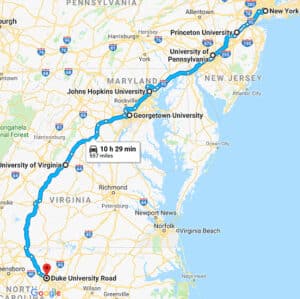
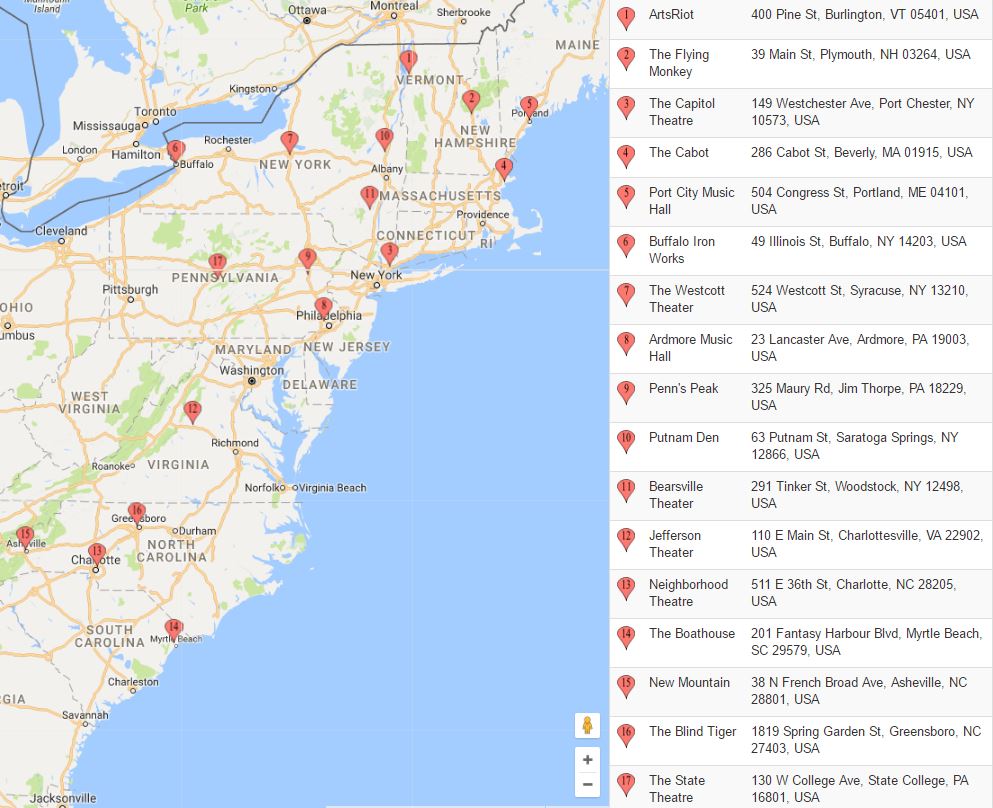
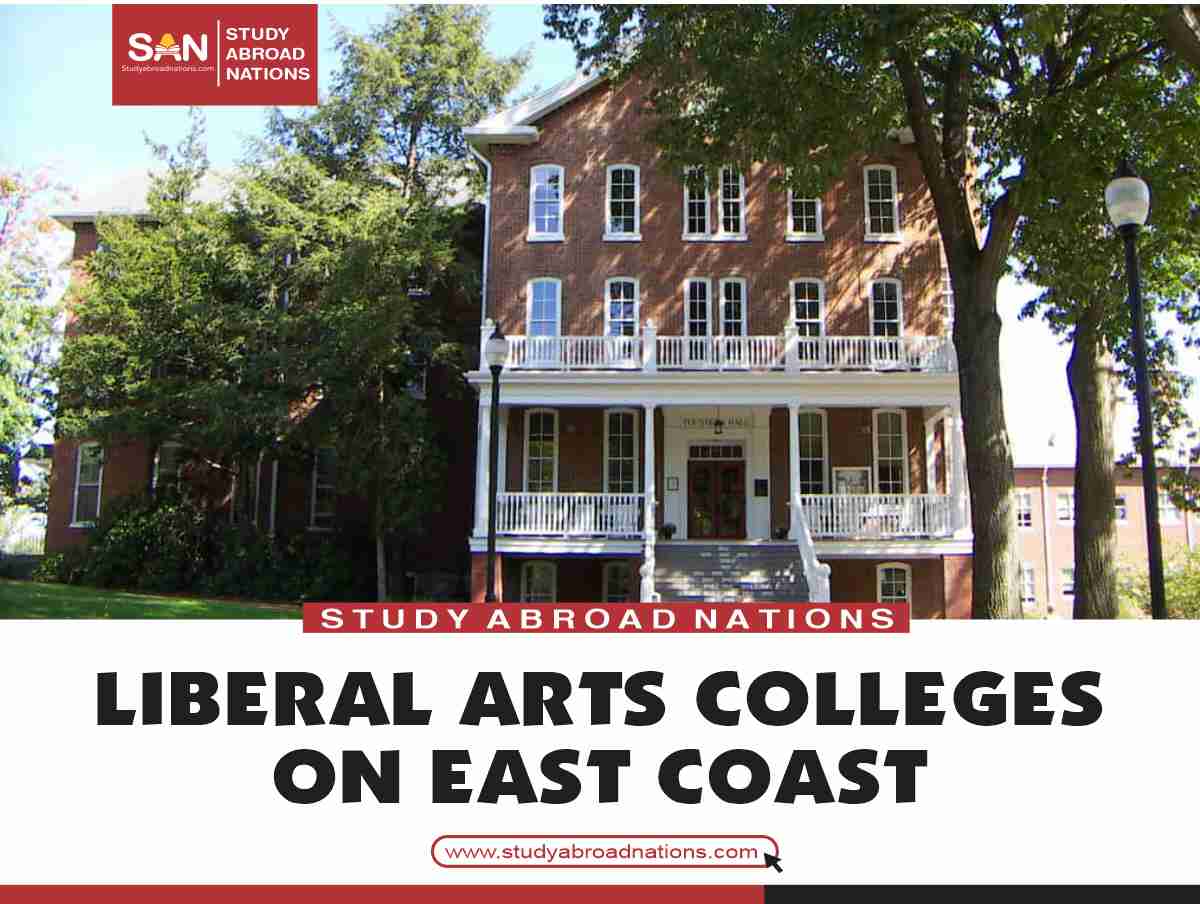


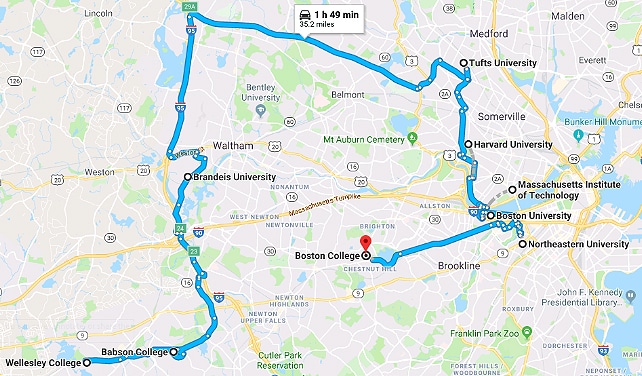
Closure
Thus, we hope this article has provided valuable insights into Navigating the East Coast’s Academic Landscape: A Guide to Top Colleges. We appreciate your attention to our article. See you in our next article!
